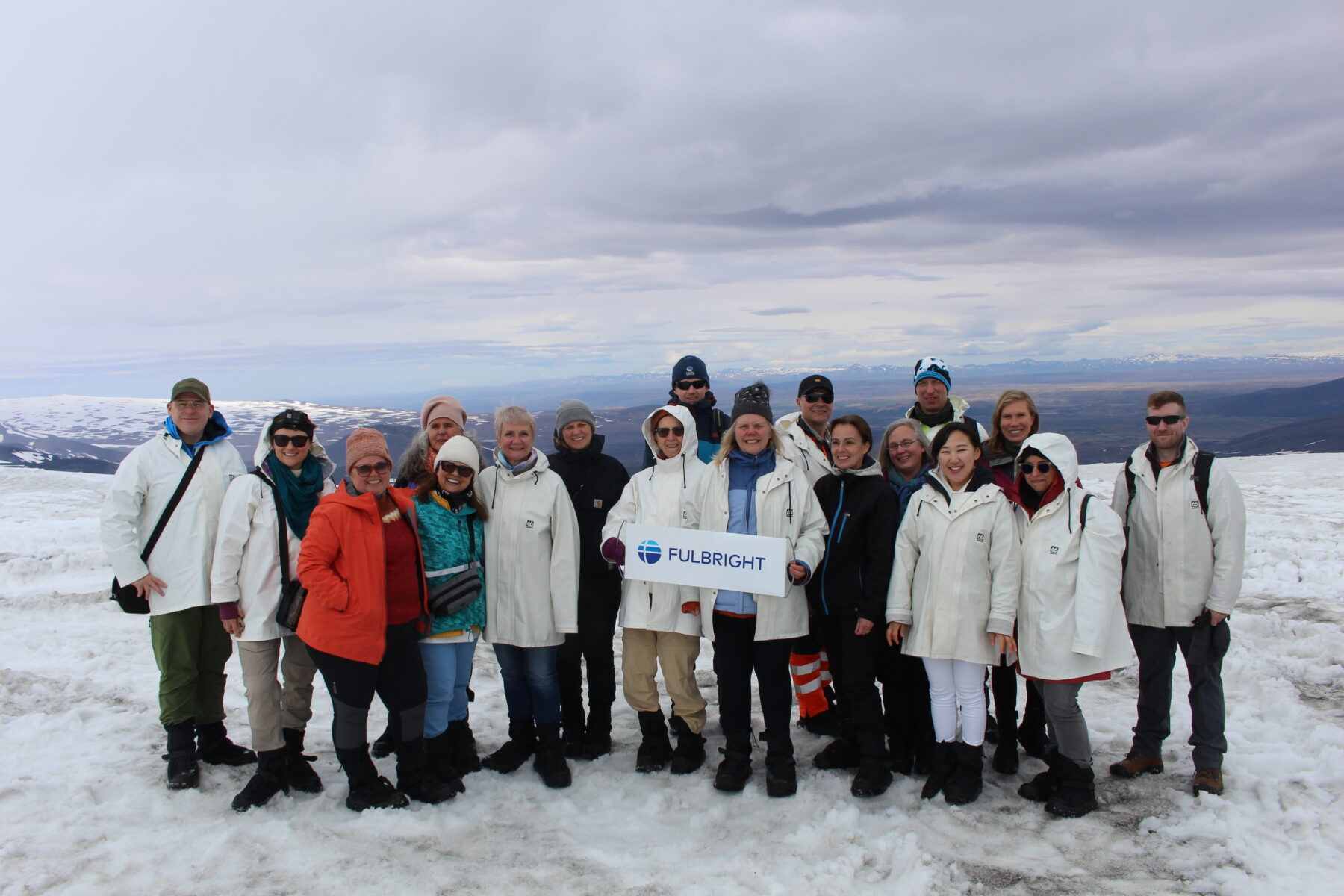Fulbright Arctic Initiative IV Accepting Applications

Fulbright Iceland is Seeking Candidates with a Strong Arctic Science Background
Applications are now open for the fourth cohort of Fulbright Arctic Initiative (FAI). Building on the scholarship of the previous three cohorts, FAI IV will bring together researchers, professionals, and practitioners from all Arctic Council states to address key research and policy questions relevant to Arctic nations’ shared challenges and opportunities. The focus relates to the multiple elements that contribute to the Arctic being a safe, healthy, prosperous, and sustainable place to live and thrive.
The Commission wishes to thank the Minister for Higher Education, Áslaug Arna Sigurbjörnsdóttir, for providing special funding for one full grant, which will allow Fulbright Iceland to offer two grants to Icelandic scholars under this exciting opportunity.
Each scholar will pursue an individual research project related to one of the three main thematic areas and will collaborate on group work on a specific theme:
- Climate Change and Arctic Resources
- Arctic Security and Governance
- Mental Health and Well-Being
Program activities will take place over an 18-month period beginning in September 2024. This includes three in-person meetings, monthly webinars and the individual exchange visit to work on the scholars’ own research projects. Icelandic participants will do their six- to 12-week individual research exchange in the United States. Approximately 16-20 scholars from all the Arctic Council states will participate in the program.
Additionally, each thematic group will organize three to five community listening sessions and will coordinate their collaboration, either virtually or in-person.
FAI IV Scholars will receive grant funding of $40,000 to cover international travel to the in-person meetings, travel and accommodation for the individual exchange visit as well as additional research costs. Accommodation and meals for three mandatory group meetings will be covered separately. Grants will also include limited accident and sickness benefits during the exchange period.
Fulbright Iceland expects to select two Icelandic candidates for FAI IV and welcomes any U.S. scholars wishing to do their individual research exchange in Iceland.
More information about FAI IV, including themes, timeline, program deliverables and benefits can be found on the Fulbright Iceland website and the FAI Information site, where you can find a recording for the FAI IV Prospective Applicant webinar and registration for the FAI IV Application Walkthrough webinar on January 31st. Interested Icelandic applicants are welcome to contact Fulbright Program Officer Pétur Valsson at [email protected] with any questions.
Application deadline is March 1, 2024.




